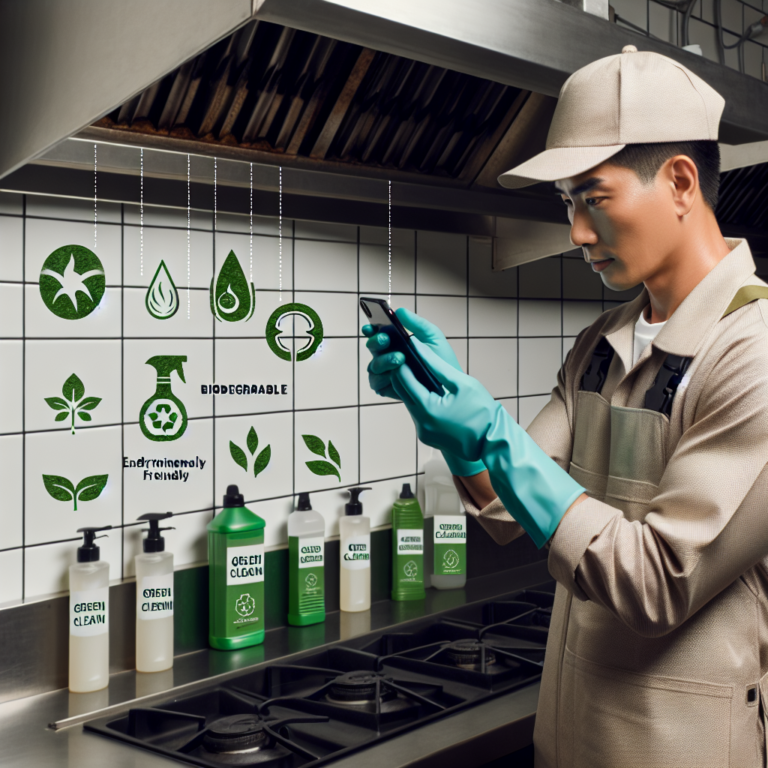Essential Tips for Effective Hood Cleaning in Large Commercial Kitchens
The Crucial Art of Hood Cleaning in Commercial Kitchens
Cleaning and maintaining a commercial kitchen is no small feat. Within this bustling environment, hidden heroes are working tirelessly to ensure everything runs smoothly. Among these unsung champions of the kitchen is the hood system. Designed to funnel out smoke, grease, and odors, these hoods play a vital role in keeping the kitchen safe and efficient. But, like any other part of a commercial kitchen, they need regular cleaning and maintenance. In this guide, we will discuss the specific challenges and requirements of hood cleaning in large commercial kitchens.
Why Regular Hood Cleaning is Essential
Imagine a hot, busy kitchen where the aroma of delicious meals is constantly wafting through the air. While this might sound pleasant, the smoke and grease accumulating in the air can pose serious risks if not properly managed. Unclean hoods can lead to:
- Fire hazards: Grease build-up can become highly flammable.
- Poor air quality: Inefficient ventilation systems can degrade indoor air quality, posing health risks.
- Health code violations: Non-compliance with local health and safety regulations can lead to costly fines.
Key Components of a Hood System
Before delving into the specifics of restaurant hood cleaning, it’s essential to understand the components involved:
- Hood Canopy: The large, often stainless steel, structure that captures smoke and fumes.
- Filters: These trap grease particles. Over time, they can become clogged and less effective.
- Ducts: These carry the captured air from the hood to the outside.
- Fans: Located at the end of the ductwork, these help expel the contaminated air.
Challenges Unique to Hood Cleaning in Large Commercial Kitchens
Cleaning hoods in a commercial kitchen is a far cry from a standard cleaning task. Let’s explore some unique challenges:
Size and Complexity
Commercial kitchens are vast spaces with large, intricate hood systems. Cleaning them requires specialized tools and expertise. In areas like Toms River NJ, businesses turn to professional services like Jersey Hood Cleaning to tackle this complex task.
Regularity and Compliance
Health and safety regulations vary, but most commercial kitchens need to clean their hoods regularly. For example, high-volume kitchens might need monthly exhaust hood cleaning, whereas lower-volume ones might only need it quarterly. Staying compliant with these schedules is crucial.
Accessibility
The parts of a hood system that need cleaning aren’t always easily accessible. This makes it challenging and sometimes dangerous for untrained employees to clean them properly.
Best Practices for Cleaning Commercial Kitchen Hoods
Given the challenges, how can businesses ensure their hoods are cleaned effectively? Here are some best practices:
Hire Professionals
While DIY might work for minor tasks, hood cleaning is ideally left to professionals. Trained technicians, equipped with the right tools and knowledge, can effectively handle the cleaning. Services like Jersey Hood Cleaning in New Jersey offer expertise tailored to commercial kitchens’ unique needs.
Regular Maintenance Checks
Don’t wait until the next scheduled cleaning. Regular checks can identify potential issues early, preventing them from becoming major problems. Scheduling monthly or bi-monthly inspections can help maintain a high standard of cleanliness and safety.
Use the Right Cleaning Agents
Not all cleaning agents are created equal. Make sure you’re using products specifically designed for cleaning kitchen hoods. Verify that these cleaning agents are environmentally friendly and compliant with local regulations.
Thorough Cleaning Process
A superficial wipe-down won’t cut it. Effective cleaning involves:
- Disassembling and soaking filters: Removing filters and soaking them in degreasing solutions.
- Scrubbing and scraping: Manually removing grease from ducts and fans.
- Pressure washing: Using pressure washers for a deep clean of the canopy and ducts.
- Inspecting and replacing parts: Checking for wear and tear and replacing parts as needed.
Final Thoughts
Effective commercial kitchen hood cleaning is vital for maintaining a safe and efficient kitchen environment. Regular, professional cleaning not only ensures compliance with health codes but also greatly reduces fire hazards and promotes better air quality for all staff. By understanding the specific challenges and following best practices, businesses can keep their kitchens running smoothly.
If you are located in Toms River NJ or elsewhere in New Jersey, don’t hesitate to reach out to the experts at Jersey Hood Cleaning to ensure your commercial kitchen stays in tip-top shape.







